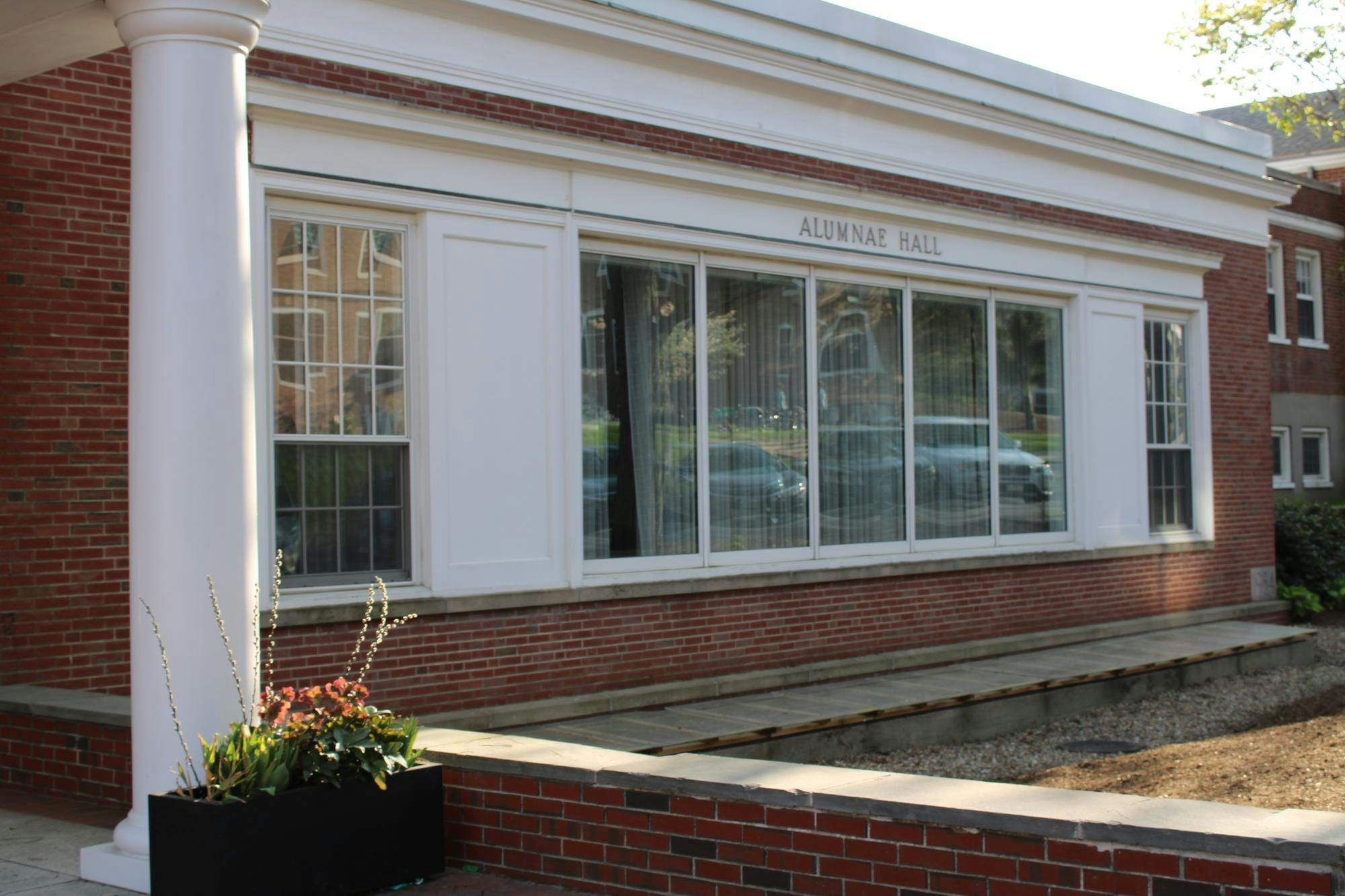Club leaders from media, programming and performance groups met with Tufts Community Union Senate leaders in the Alumnae Lounge on Friday for a shared lunch, part of a five-part series where the TCU Senate invites different club presidents to lunch. These meetings were coordinated to discuss problems these clubs face and to foster a stronger connection between TCU Senate leaders and student organizations.
Arielle Galinsky, TCU Senate president, moderated the event. Among the attendees were club presidents from a capella groups, Public Harmony and Tufts Mimes. The goal of this discussion was for the senators to gain a deeper understanding of issues specific to programming, media and performance organizations, Galinsky said.
"The obstacles that a performance group would face is very different from what a political organization would face, or [a] religious or cultural organization," Galinsky said. “And so through these lunches, we have the opportunity to really kind of understand those nuances and be able to effectively pursue them in our advocacy as student government leaders."
According to Galinsky, these insights will affect the internal policy of the TCU Senate and determine what issues the senate will discuss with the Tufts administration.
Clara Scheutz, co-president of the Jackson Jills a cappella group, was excited to connect with the TCU senators and leaders of other performance groups at the event.
“I was really looking forward to networking with other groups and discussing shared concerns about various things on campus, and also just having the face time with people from the TCU Senate, who can advocate on behalf of our organizations to Tufts’ administration,” Scheutz said.
Varun Sasisekharan, president of the Beelzebubs a cappella group, further emphasized the importance of these meetings.
“Each of our groups are in our own bubble sometimes, and it’s hard to understand how everyone else functions in the context of being a student and a performer at this university,” Sasisekharan said. “So I think just coming here and hearing from everyone else, how their experience has been, how they’ve navigated being in the role that they’re in. That’s what I was looking forward to [in this meeting].”
Matt Gomez, president of performance group, echoed this idea.
"So many of us have similar issues that we’ve been dealing with, and actually talking about them and seeing that other organizations are having these similar problems and trying to work towards them was really, really helpful,” Gomez said.
One concern for numerous clubs revolved around booking spaces on campus, particularly for end-of-semester performances. According to Galinsky, 21 new student organizations have been approved by the TCU Senate.
“There are so few spaces and so many groups who have this interest, and a lot of that is compounded by the fact that there are many new groups on campus,” Galinksy said, “A lot more groups, a lot more students, and the same amount of spaces. So there’s not a lot of space for groups to have their activities, their events and their performances.”
Also discussed were problems coordinating events and showcases among different performance clubs. Gomez explained that for Public Harmony, a “platform for other organizational leaders to discuss working spaces [and] making sure that we’re not overlapping with our different events” would be very beneficial.
Finances were another topic that many clubs had shared concerns over.
“We also talked about funding for albums and reducing that barrier for groups to be able to fundraise on their own or to rely on alumni donations and allowing them to use TCU Senate funds to be able to cover their albums and travel to performances and gigs,” Galinsky said.
The clubs also raised questions about issues with the reimbursement system for self-funded groups on campus and discussed further action to take toward resolving this issue.
“Hopefully we can get a conversation going with [Office of Campus Life] staff about how to make the reimbursement system run smoothly from here on forward and work out some of the kinks in the system,” Scheutz said.
The lunch elicited positive feedback from both club leaders and TCU senators. Galinsky explained that her goal this semester was to ensure that student leaders felt comfortable sharing their thoughts and opinions with the Senate.
“[The Senate] has sometimes been in this kind of ivory tower, not really being truly accessible," she said. “Today, I think we really broke that barrier by being able to effectively have these conversations in a comfortable, informal atmosphere.”
Gomez also remarked on the success of the meeting. “The fact that we’re able to raise these concerns to their attention and, hopefully, work towards a solution is really huge,” he said.






